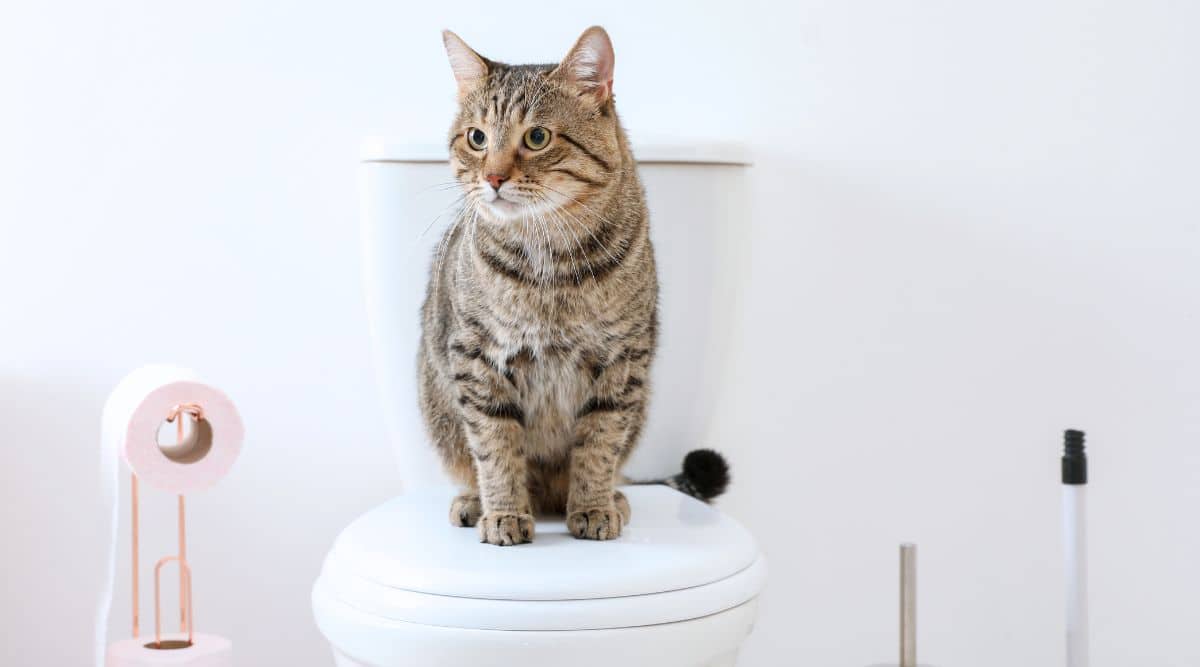Understanding the Harms of Flushing Animal Waste Down the Toilet
Understanding the Harms of Flushing Animal Waste Down the Toilet
Blog Article
The author is making several good observations relating to Why you should never flush dog poop down the toilet as a whole in the content directly below.

When it comes to throwing away waste, especially animal waste, lots of people commonly resort to the practical choice of flushing it down the commode. However, this relatively simple remedy can have serious repercussions for the atmosphere and public health. In this article, we'll explore why flushing animal waste down the bathroom is a poor idea and offer alternate techniques for appropriate disposal.
Introduction
Appropriate garbage disposal is vital for preserving environmental sustainability and public health. While it may seem safe to purge animal waste down the toilet, it can result in different problems, both for the atmosphere and human wellness.
Dangers of flushing animal waste
Ecological effect
Flushing pet waste introduces hazardous microorganisms and microorganisms right into waterways, which can adversely impact water environments. These pathogens can pollute water resources and injury marine life, interrupting delicate environments.
Public health problems
Pet waste contains unsafe germs such as E. coli and Salmonella, which can posture severe health and wellness risks to people. Purging pet waste down the bathroom can infect water materials, bring about the spread of illness and infections.
Alternatives to flushing
Instead of flushing pet waste down the bathroom, there are a number of alternate disposal techniques that are more eco-friendly and sanitary.
Composting
Composting pet waste is an environment-friendly means to deal with it. By composting, organic matter is broken down into nutrient-rich dirt, which can be made use of to feed gardens and plants.
Landfill disposal
Throwing away animal waste in a landfill is an additional choice. While not as environmentally friendly as composting, it is a more secure option to flushing, as it avoids the contamination of water resources.
Animal garbage disposal systems
There are specialized family pet waste disposal systems offered that securely and hygienically throw away pet waste. These systems typically make use of enzymes to break down waste and eliminate smells.
Steps to appropriate pet waste disposal
To guarantee correct disposal of pet waste, follow these steps:
Scooping and getting waste
Regularly scoop and bag animal waste utilizing biodegradable bags. This avoids waste from polluting the atmosphere.
Utilizing assigned waste bins
Dispose of bagged pet waste in assigned waste bins, such as compost containers check here or land fill containers. Prevent flushing it down the toilet at all prices.
Cleaning up litter boxes and family pet areas frequently
Routinely clean litter boxes and animal locations to stop the accumulation of waste and microorganisms. Usage pet-safe cleaning items to preserve hygiene.
Advantages of proper disposal approaches
Taking on appropriate disposal techniques for pet waste uses several benefits:
Decreased environmental pollution
Correct disposal techniques reduce the danger of environmental pollution, safeguarding rivers and ecosystems from contamination
Lessened threat of water contamination.
By avoiding flushing animal waste down the bathroom, the threat of water contamination is considerably minimized, guarding public health.
Boosted sanitation and hygiene
Proper disposal methods advertise far better hygiene and health, developing a more secure atmosphere for both people and animals.
Final thought
In conclusion, flushing animal waste down the toilet is harmful to the environment and public health. By taking on alternate disposal techniques and following correct waste administration methods, we can minimize the adverse influence of animal waste and add to a cleaner, healthier earth.
What To Do With Dog Poo – The Do's And Don'ts Of Disposing Of Faeces
Dog poo bins
Some councils provide dedicated dog waste bins in popular dog-walking areas that can take dog poo that has been bagged but you can legally dispose of dog waste in any public litter bin, as long as it is securely bagged. This also applies to your wheelie bin at home.
Do not flush
Water companies do not recommend flushing dog faeces down the toilet because certain parasites can survive the water processing treatment and are potentially harmful to humans. You should also never consider flushing dog poo that has been bagged down the toilet as the bags will not break down and instead create severe blockages in the sewage system.
In the woods
The Forestry Commission promotes a ‘stick and flick’ method for dealing with waste in the woods. This means finding a stick and using it to flick any poo from off the path so that it is out of the way of other walkers. You could also bury it as long as it is not in an area where there might be livestock.
Livestock
Parasites found in dog poo can be transmitted to livestock if they inadvertently eat infected faeces that has been left on grazing land. This could result in the death of sheep or abortion in cattle so you should always make sure you pick up your dog’s waste in fields where livestock could be present.

Routinely clean litter boxes and animal locations to stop the accumulation of waste and microorganisms. Usage pet-safe cleaning items to preserve hygiene.
Advantages of proper disposal approaches
Taking on appropriate disposal techniques for pet waste uses several benefits:
Decreased environmental pollution
Correct disposal techniques reduce the danger of environmental pollution, safeguarding rivers and ecosystems from contamination
Lessened threat of water contamination.
By avoiding flushing animal waste down the bathroom, the threat of water contamination is considerably minimized, guarding public health.
Boosted sanitation and hygiene
Proper disposal methods advertise far better hygiene and health, developing a more secure atmosphere for both people and animals.
Final thought
In conclusion, flushing animal waste down the toilet is harmful to the environment and public health. By taking on alternate disposal techniques and following correct waste administration methods, we can minimize the adverse influence of animal waste and add to a cleaner, healthier earth.
What To Do With Dog Poo – The Do's And Don'ts Of Disposing Of Faeces
Dog poo bins
Some councils provide dedicated dog waste bins in popular dog-walking areas that can take dog poo that has been bagged but you can legally dispose of dog waste in any public litter bin, as long as it is securely bagged. This also applies to your wheelie bin at home.
Do not flush
Water companies do not recommend flushing dog faeces down the toilet because certain parasites can survive the water processing treatment and are potentially harmful to humans. You should also never consider flushing dog poo that has been bagged down the toilet as the bags will not break down and instead create severe blockages in the sewage system.
In the woods
The Forestry Commission promotes a ‘stick and flick’ method for dealing with waste in the woods. This means finding a stick and using it to flick any poo from off the path so that it is out of the way of other walkers. You could also bury it as long as it is not in an area where there might be livestock.
Livestock
Parasites found in dog poo can be transmitted to livestock if they inadvertently eat infected faeces that has been left on grazing land. This could result in the death of sheep or abortion in cattle so you should always make sure you pick up your dog’s waste in fields where livestock could be present.

As a reader about Don't Flush Your Pets Poo Down The Loo, Vet Warns, I imagined sharing that blog post was a good thing. Do you know about somebody who is sincerely interested in Why you should never flush dog poop down the toilet? Feel free to share it. We truly appreciate your readership.
Schedule Appointment Report this page